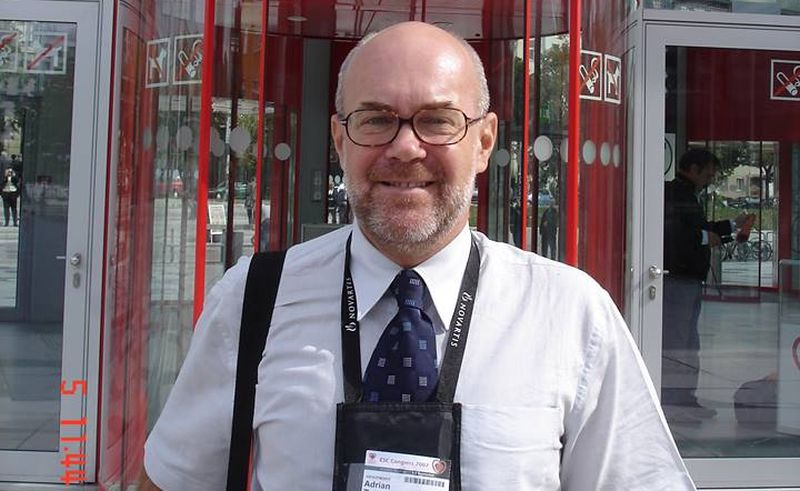Cardiologist from Pitesti, Dr. Adrian Tase: “The heat wave attacks the heart”.
Summer has come into its own. Excessive heat causes discomfort especially for the elderly over 65, young children, pregnant women, obese, alcoholics, people with disabilities, diabetic patients, those with cardiovascular disease, with chronic diseases in general.
When high temperatures are associated with a high degree of humidity, the situation is even worse, because heat loss through the mechanism of perspiration can no longer be achieved. The thermal comfort index correlates the air temperature with the relative humidity.
High temperatures lead to dehydration. Adrian Tase, one of the most appreciated and experienced cardiologists in Argeş, spoke about the measures that vulnerable people should take in order to survive the excessive heat.
Dehydration can lead to aggression
“Because of the excessive heat, there are symptoms such as dizziness, nausea, fainting, headache, palpitations, muscle cramps. Due to the heat, the whole inner balance of the individual is disturbed, with physical exhaustion and agitation. Everyone’s ability to concentrate decreases, leading to a relative state of confusion. Therefore, the effects of the heat wave are felt not only physically, but also mentally, because high temperatures lead to brain dehydration, “said Dr. Adrian Tase.
Dehydration can lead to aggression. At the cardiac level, several types of problems can occur during the heat. Heart rhythm disorders are characterized by an increase in heart rate, possibly with irregularities. Tachycardia can be sinus, ie the acceleration of the physiological rhythm.
“Caloric shock increases heart rate. Sometimes extrasystoles also appear. There are also more severe tachyarrhythmias, such as paroxysmal supraventricular tachycardia or paroxysmal atrial fibrillation. Dehydration can lead, in addition to water loss, to calcium, magnesium and potassium ions.
Decreased blood potassium levels may be responsible for triggering tachyarrhythmias. Typical angina pains appear by increasing myocardial oxygen consumption, while atypical ones are caused by nervousness, anxiety, irritability, panic.
Dehydration of the nervous system can lead to irritability, hostility and even aggression, all sources of chest pain. In the last week, I treated a fairly large number of hypertensive patients in whom the increase in blood pressure values was correlated with the heat wave “, stated the doctor Adrian Tase.
In contrast, there are cases of decreased blood pressure, either by dehydration, which leads to a decrease in blood volume and subsequent blood pressure, or by the exaggerated action of antihypertensive drugs.
Patients with long-term heart disease may be compensated for by heat, leading to heart failure manifested by shortness of breath and edema of the lower limbs.
Regarding cardiac medications, caution is needed due to the risk of hypotension due to dehydration: the doses of antihypertensive drugs and especially diuretics should be adjusted by the cardiologist. Patients taking thyroid hormones should also see an endocrinologist for dose adjustment. The diet should be predominantly vegetable.
What are the solutions?
Because global warming acts on the planet in an insidious, treacherous, asymptomatic manner, such as high blood pressure or diabetes in the human body, we must adopt a smart lifestyle to counteract the effects of the heat wave. It is valid not only for the heart, but for the whole population.
“The first thing we need to do, especially during peak hours, is to take a break from going to a cool place. Just as there are water-cooled and air-cooled engines, respectively, the human body can cool down in the pool or in air conditioning.
When the ambient temperature is higher than the indoor temperature, the windows must be closed. What follows is the generous consumption of liquids: water, fruit juices, yogurt or, best of all, isotonic drinks, without waiting for the feeling of thirst.
The diet must be predominantly vegetable, in accordance with the European Parliament’s directive of 5 fruits / vegetables per day. In addition, fats should be avoided as they are calorific. So is physical exertion, because muscle fibers generate heat. As for caffeine and alcohol, they should be avoided in the heat, even if they are cold.
Physical effort should be kept to a minimum, and clothing should be light and light. It is recommended to cover the head with a white hat, sunglasses, white sunscreen umbrellas, light linen clothes or other vaporous white materials “, explained the cardiologist.
–


